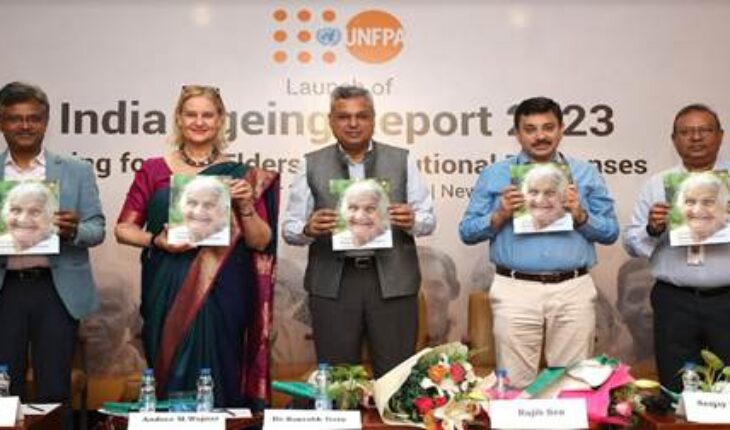New Delhi: United Nations Population Fund (UNFPA), India, in collaboration with the International Institute for Population Sciences (IIPS), unveiled the highly anticipated “India Ageing Report 2023.”
This report sheds light on the challenges, opportunities and institutional responses surrounding elderly care in India, as India navigates a demographic shift towards an ageing population.
The report was jointly released by Saurabh Garg, Secretary, Ministry of Social Justice and Empowerment, Government of India and Ms. Andrea M. Wojnar, UNFPA India Representative and Country Director Bhutan.
The report carries a thorough review of the living conditions and welfare of older individuals in India. It leverages the latest data available from the Longitudinal Ageing Survey in India (LASI), 2017–18, Census of India, Population Projections by the Government of India (2011–2036) and World Population Prospects 2022 by the United Nations Department of Economic and Social Affairs to provide an up-to-date perspective.
“As India ages, it is imperative to ensure that our elderly population has access to the care and support they need to live healthy, dignified, and fulfilling lives. The India Ageing Report 2023 provides a valuable roadmap for achieving this goal and I urge all stakeholders to work together to implement its recommendations,” said Saurabh Garg.
Andrea. M. Wojnar commented, “This comprehensive report is a valuable resource for scholars, policymakers, program managers, and all stakeholders involved in elder care. Older persons have contributed significantly to society, and they deserve nothing less than our best efforts to ensure their well- being.”
Rreport’s key findings encompassing a range of analyses related to elderly well-being–
*The enhancement of geriatric care to cater to the unique healthcare needs of seniors.
*A multitude of government schemes and policies addressing the health, financial empowerment, and capacity building needs of the elderly population.
*Community-based organizations actively engaged in digital empowerment through computer and internet usage sessions.
*Ministerial committees dedicated to shaping policies for elderly welfare.
*Corporate efforts for joyful aging, social assistance, old age homes, and elder abuse awareness campaigns.






